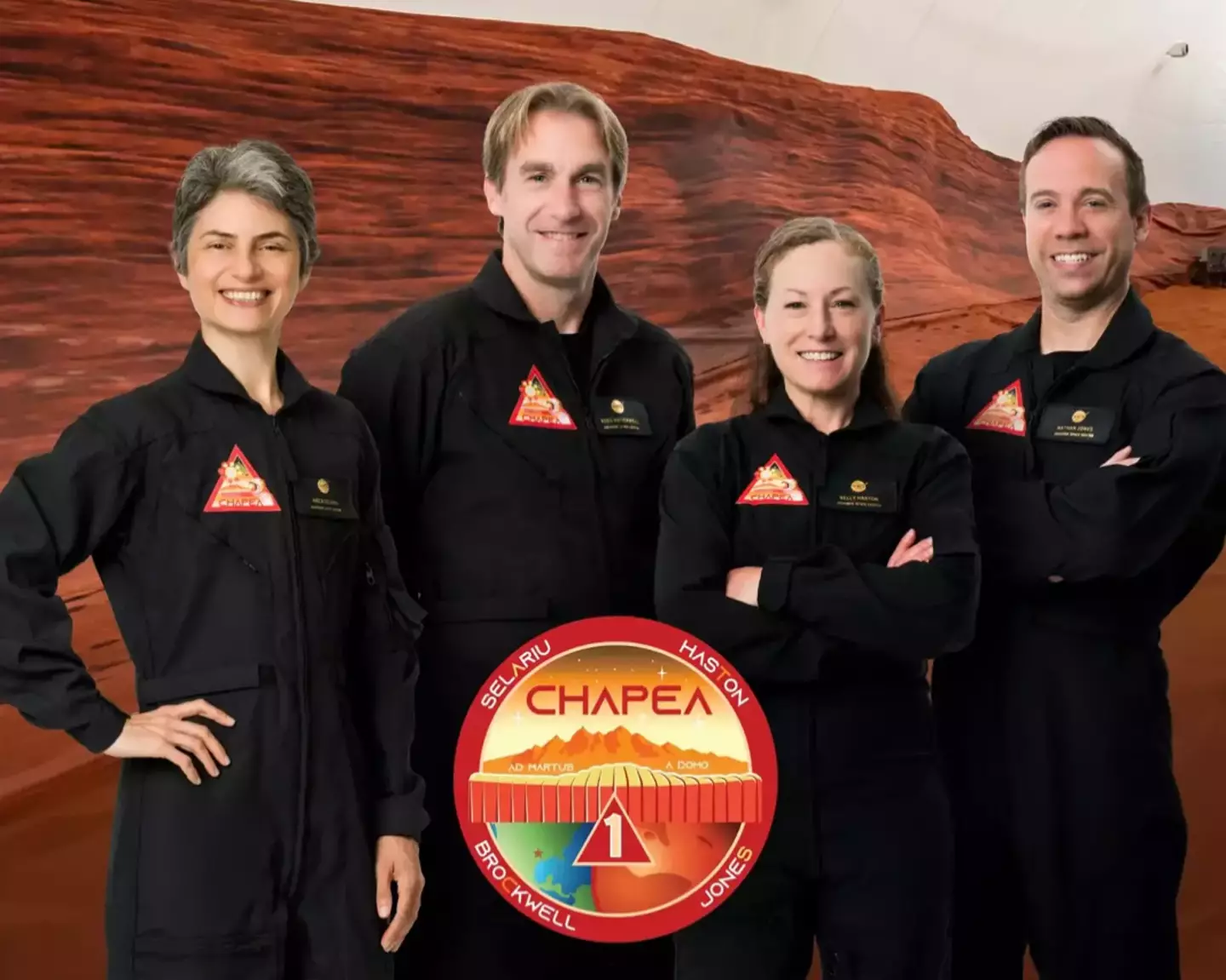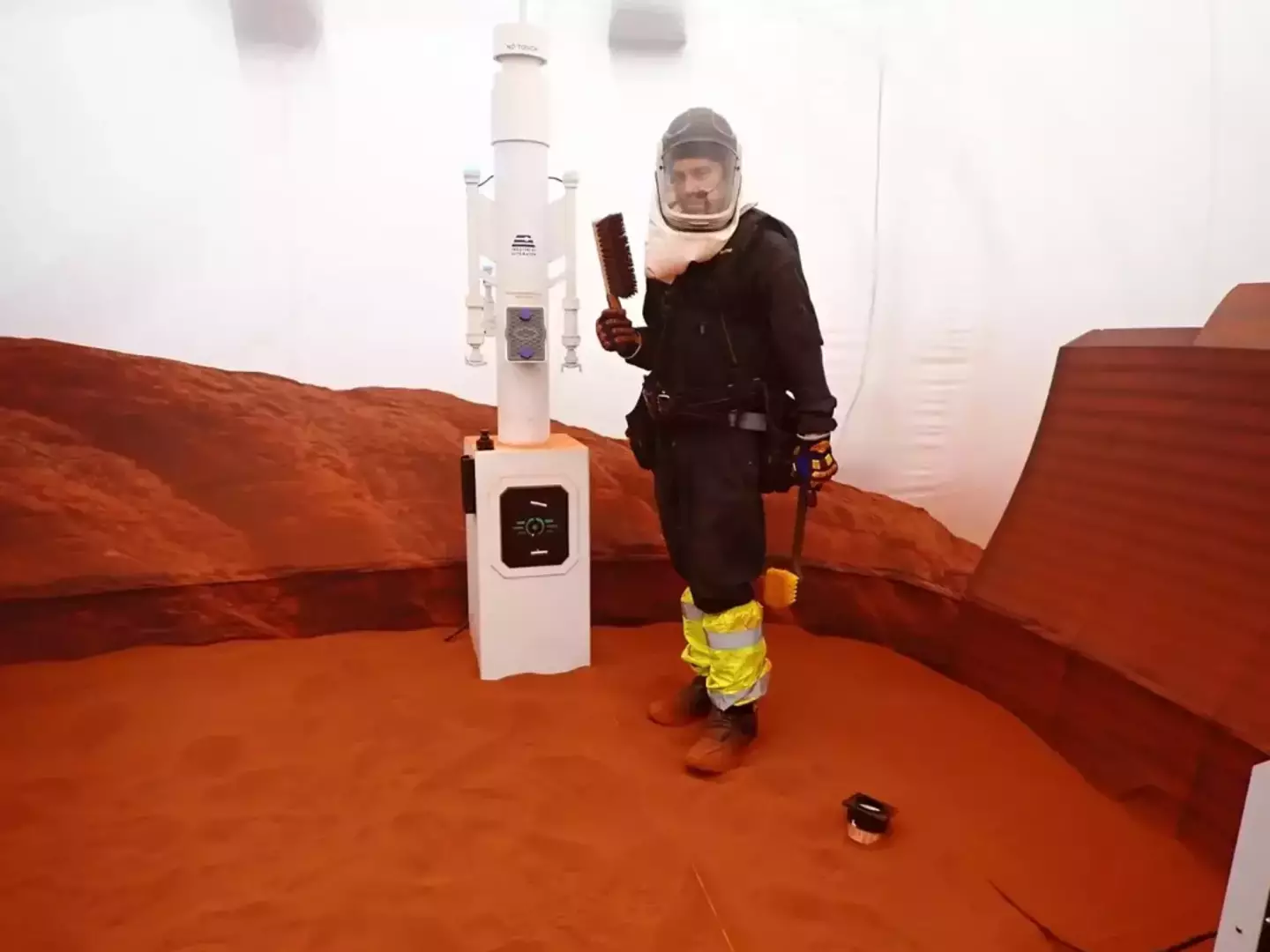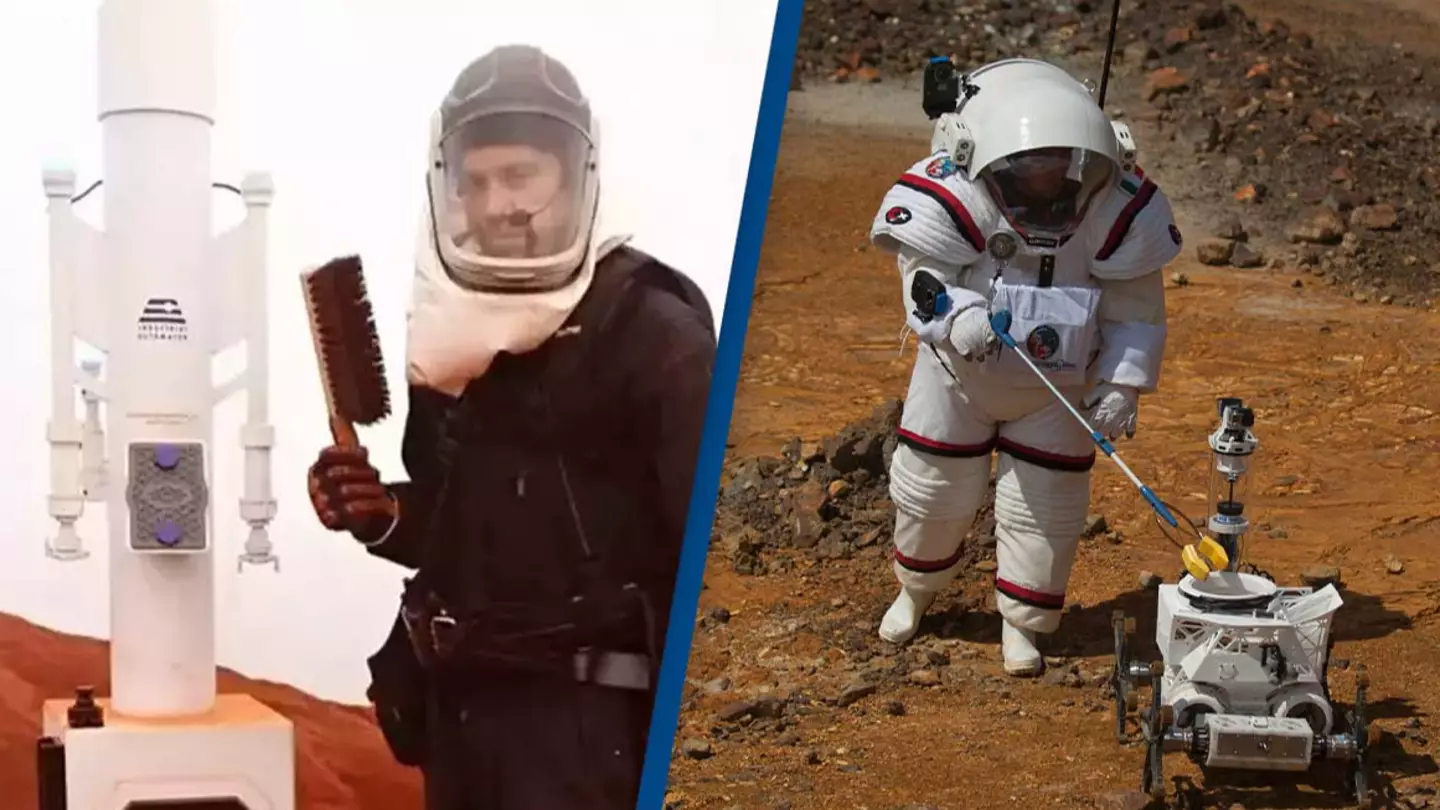This past year, a NASA crew has been living out a groundbreaking Mars simulation in Texas, set to wrap up this weekend. While it’s been decades since humans last touched down on the Moon in 1972, the frontiers of space continue to push forward with exciting developments. In June 2023, NASA launched the CHAPEA simulation, creating a robust Mars-like habitat where astronauts even need spacesuits to explore the simulated ‘Martian’ outdoors.

At the start of this intense experiment, NASA outlined the objectives clearly: “We’re really looking at how the crew performance and health changes based on realistic Mars restrictions and lifestyle of the crew members. So the lifestyle is what we’re trying to simulate by setting up a realistic environment and workload for the CHAPEA crew.”
Although updates from the mission were sparse, a significant announcement came six months in, revealing the unexpected ‘death’ of a robotic crew member, an incident described by one astronaut as a ‘traumatic death’. Dr. Nathan Jones, the medical officer, humorously confessed, “I may have accidentally murdered one of our robots.” Oh, Nathan.

The psychological impacts of isolation were also a key focus of the study. Science officer Anca Selariu reflected on her yearlong experience, saying, “I really miss driving. I miss seeing trees, I miss seeing green. I miss the colors, the seasons. I miss everything about Earth.”
The crew, including Dr. Kelly Haston, Ross Brockwell, Dr. Nathan Jones, and Dr. Anca Selariu, engaged in simulated spacewalks and robotic operations, maintaining a routine similar to what would be expected on a real Mars mission. Communications with Earth were delayed by at least 20 minutes to mimic the real-time lag of interplanetary communication.
With their return to normal life scheduled for 5 pm EDT this Saturday (6 July), the crew’s transition back to Earth will be live-streamed by NASA on their website and social media channels, marking the end of their year-long Martian adventure.

